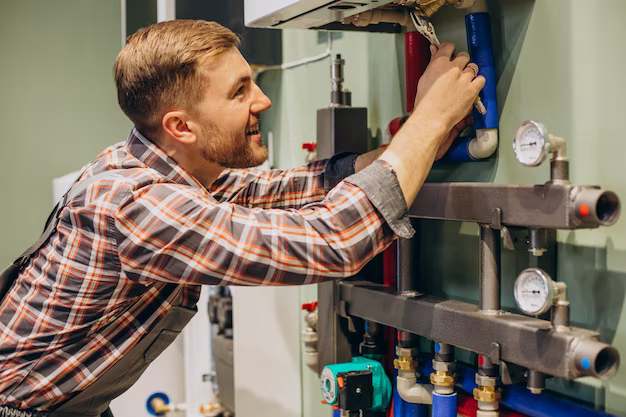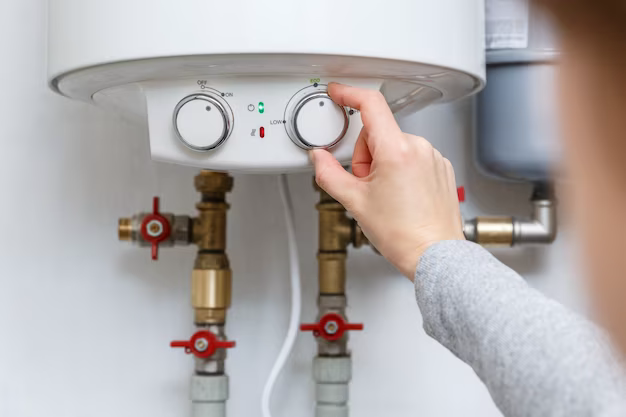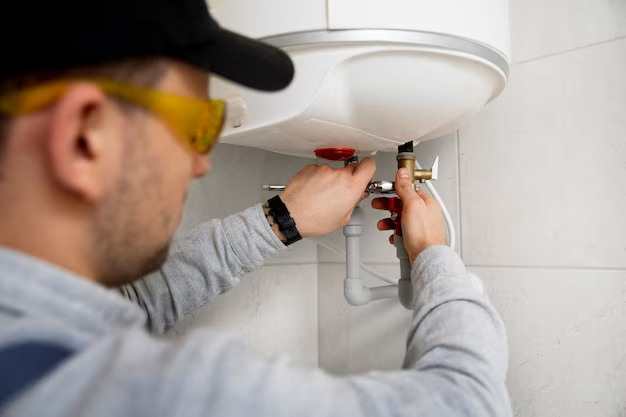How to tell if hot water heater is full?
Definition of Hot Water Heater
A hot water heater, also known as a water heater tank or hot water tank, is an essential appliance for most households. It is typically a cylindrical container that is designed to heat and store water for domestic use. Most hot water heaters are located in a designated room or closet and are connected to the home’s water supply.

The two most common types of hot water heaters are gas and electric. Gas water heaters use a natural gas or propane burner to heat the water while electric water heaters use an element within the tank to heat the water. There are also tankless water heaters that are becoming increasingly popular due to their energy efficiency and space-saving benefits.
Hot water heaters come in different sizes and capacities depending on the household’s water usage needs. It is essential to choose a hot water heater that can sufficiently provide hot water for the household’s hot water needs and not oversize or undersize the unit.
In conclusion, a hot water heater is a vital appliance for a household’s daily water usage needs. It is important to choose the right type and capacity, and perform regular maintenance to keep the unit functioning correctly and efficiently. Any signs of issues with the hot water heater should be addressed promptly to prevent further problems.
Purpose of Knowing If Water Heater Is Full
Knowing if your hot water heater is full can save you time and money in the long run. The purpose of understanding if your water heater tank is full is to ensure that you are maximizing its efficiency while also preventing any potential damage to the unit.
A full hot water heater tank is essential for the proper functioning of the unit and its ability to provide hot water to your household. If the tank is not full, it can lead to premature wear and tear on the heating elements, resulting in the need for more frequent repairs and replacements.
Regularly checking to ensure that your water heater is full can also help you optimize its performance and efficiency. A full tank means that the unit is able to quickly heat up the water, ensuring that you have a steady stream of hot water when you need it. Moreover, a full tank can help you save on energy costs, as the unit will not need to work as hard to heat up the water.
In conclusion, understanding the importance of knowing if your water heater is full can help you maintain the unit’s longevity, prevent damage and repairs, optimize its performance, and ultimately save you time and money in the long run.
Types of Water Heaters
When it comes to water heaters, there are several different types to choose from. Each type has its own benefits and drawbacks, and choosing the right one for your home will depend on several factors such as budget, energy efficiency, and available space. Here are some of the most common types of water heaters:
1. Conventional Storage Tank Water Heaters
Conventional storage tank water heaters are the most common type of water heater found in households. These units store and heat a large amount of water in a tank, which is then available for use throughout the home. While these units are typically less expensive upfront, they can be less energy-efficient than other types and may require more maintenance in the long run.
2. Tankless Water Heaters
Tankless water heaters, also known as on-demand water heaters, heat water as it flows through the unit rather than storing it in a tank. These units can be more energy-efficient than conventional tank models because they only heat water when it’s needed. They can also save space since they don’t require a large storage tank. However, they can be more expensive upfront and may not be able to provide enough hot water for larger households.

3. Heat Pump Water Heaters
Heat pump water heaters use electricity to move heat from the air or ground to heat the water in the tank. These units can be extremely energy-efficient and can save homeowners a significant amount of money on their energy bills. However, they can be more expensive upfront and may require more maintenance than other types.
4. Solar Water Heaters
Solar water heaters use the power of the sun to heat the water in the tank. These units can be extremely energy-efficient and can save homeowners a significant amount of money on their energy bills. However, they can be more expensive upfront and may not be as effective in areas with limited sunlight.
5. Hybrid Water Heaters
Hybrid water heaters combine the technology of conventional storage tank models with that of heat pump models. These units can be extremely energy-efficient but can be more expensive upfront than conventional tank models.
When choosing a water heater for your home, it’s important to consider factors such as energy efficiency, budget, and available space. It’s also a good idea to consult with a professional to determine which type of water heater is right for your specific needs.
Gas Water Heaters
Gas water heaters remain a popular choice for many households when it comes to providing hot water. These units use natural gas or propane to heat the water in a tank, which is then available for use throughout the home. Here are some key things to know about gas water heaters:
Efficiency: Gas water heaters are generally more energy-efficient than their electric counterparts. When compared to electric water heaters, gas models can heat water more quickly, providing a steady stream of hot water. This can be particularly beneficial for larger households or for situations where multiple people need to use hot water simultaneously. Additionally, gas is often less expensive than electricity, which can lead to lower energy bills over time.
Installation: Installing a gas water heater requires a bit more expertise and attention to safety. Gas lines and connections must be properly installed and sealed to prevent the risk of gas leaks or fires. It’s important to hire a licensed professional to install your gas water heater to ensure that the job is done correctly.
Maintenance: Gas water heaters require regular maintenance to ensure that they continue to function safely and efficiently. This includes checking the flue and venting system to make sure that they are clear and free of obstructions, as well as periodically flushing the tank to remove any sediment buildup. Ignoring regular maintenance can lead to issues like carbon monoxide leaks, which can be extremely dangerous.

Safety: Gas water heaters can pose certain safety risks, particularly when they aren’t properly installed or maintained. Carbon monoxide is a colorless, odorless gas that can be produced when gas is burned for heating, and it can be extremely dangerous if it accumulates in the home. To prevent the risk of carbon monoxide poisoning, gas water heaters should be installed in well-ventilated areas, and regular maintenance and inspections should be scheduled to ensure that everything is functioning safely.
Overall, gas water heaters can be an excellent option for many households looking to provide reliable hot water. By understanding how these units work and the important safety and maintenance considerations involved, homeowners can make an informed choice about the type of water heater that best meets their needs.
Meet Lila Robinson, an expert in the world of plumbing with a talent for delivering valuable insights and captivating articles on an array of plumbing topics. With years of experience handling complicated plumbing issues, Lila has become a go-to resource for homeowners and businesses alike.
Packing vast knowledge in plumbing tools and science, Lila creates a sense of community on her blog and social media accounts, engaging with readers from all walks of life. Her writing style is authentic, unique, and engaging, and she has an exceptional ability to break complex concepts into understandable ideas.
If you have encountered a plumbing issue, chances are Lila Robinson has conquered it. Her articles uncover the underlying problems behind some of the most unexpected plumbing problems, from tankless water heater error codes to drain snakes in vents.
Whether you’re a beginner or an experienced plumber, Lila Robinson’s blog has something for you. Follow her social media accounts to keep up-to-date with the latest posts and join the conversation.